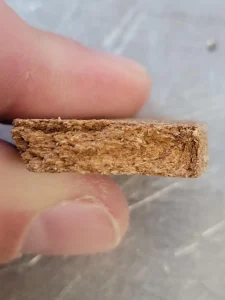About
Utilizing 100% bio-based materials for sustainability and helping to mitigate climate change.
Nonrenewable resources underpin our country’s critical infrastructure and as a result, many of our renewable resources are underutilized or wasted. The current housing economy operates on a model that damages the environment rather than a circular one that coexists with it. For example, buildings emit more than one-third of greenhouse gases globally and lumber mills producing housing construction materials currently convert only 40% of wood volume to lumber, leaving the remainder to be disposed of.

This Research Infrastructure Improvement Track-2 Focused EPSCoR Collaboration (RII Track-2 FEC) award will allow University of Idaho and Auburn University project teams to create a foundational framework to utilize renewable and waste feedstocks to make and utilize 100% bio-based materials for the Advanced Housing Manufacturing Industry of the Future.
The overall goal of this project is to develop the science, technology, and educational frameworks required to enable an Advanced Housing Manufacturing Industry of the Future through the necessary intersection of unique interdisciplinary collaborations.
Specifically, project teams at the University of Idaho and Auburn University will:
- fractionate and characterize (via spectroscopy) bio-oils, chemically transform the oils into resins, and incorporate nanofibrillated cellulose to improve their properties
- develop additive manufacturing technology that is compatible with thermosetting type wood/bio-resin composites, incorporate reinforcing agents, such as biochar and long natural fibers, evaluate the properties of the composites via rheometry, thermal analysis, and spectroscopy, and 3-D print prototype building wall panels for evaluation
- evaluation, simulate, and predict composite material performance through ASTM tests, and incorporate fire and durability test data into neural network models to optimize material performance
- promote housing construction market transformation toward more resilient building paradigms by developing resilience assessment tools for the architecture, engineering and construction industry and municipalities, and to develop curricular and pedagogical strategies for education these stakeholders
The scientific knowledge gained from this project will allow for better use of timber waste materials in two EPSCoR states, Idaho and Alabama, thereby increasing housing affordability and sustainability, ultimately contributing to the mitigation of climate change.
